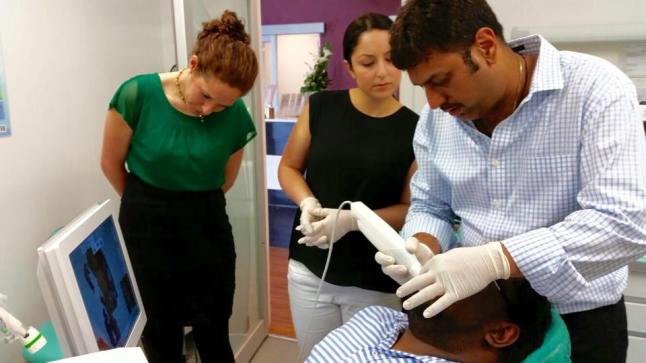Painless Dental Care - A Surge in this Practice
Pain-free dentistry has its origin in 1846 when William T.G. Morton, an American dentist, administered a sulphur-ether compound to a patient prior to dental surgery which was performed by Dr John Warren. This historic event happened at Harvard University. Almost two centuries later, painless dentistry has improved by leaps and bounds because of corresponding improvements in anaesthesia, dentistry and medicine.

Painless dental procedures are increasingly becoming popular among dentists and patients for several reasons. But to understand these benefits, it is necessary to understand pain free dentistry.
Sedation dentistry, as the practice is called in medical circles, refers to the use of pharmacological drugs in calming and relaxing patients before and during dental procedures. These drugs are usually sedatives, which depress the central nervous system in general and suppress conscious awareness in particular.
The levels of sedation include minimal, moderate and deep. Minimal sedation refers to the condition where the patient can readily respond to physical and verbal stimuli; in moderate sedation, the patient responds to purposeful stimuli; and in deep sedation, the patient is unresponsive to stimulation because he is unconscious. The level of sedation depends on the patient’s anxiety levels.

With such versatility in addressing the needs of patients, it comes as little to no surprise that pain free dentistry is becoming increasingly popular. Not only will you be able to choose your level of sedation based on your stress, anxiety and fear levels but you need not be injected with needles in your mouth! Your dentist can choose between several modes of non-needle administration such as oral intake, inhalation, and rectal insertion.
Painless dentistry, however, is not for every dentist to practice although every dentist can train for it. You must ask whether your dentist is qualified to practice sedation dentistry lest you become more sedated than you need to be. Keep in mind that improper handling of sedatives can have adverse effects on your health.

But when pain free dentistry is done in the right manner by the right dentist, you will love how your dental visits are marked by significantly less anxiety. You will recommend it to your family, friends and colleagues – and that is how you become part of the surge in this practice.




Comments